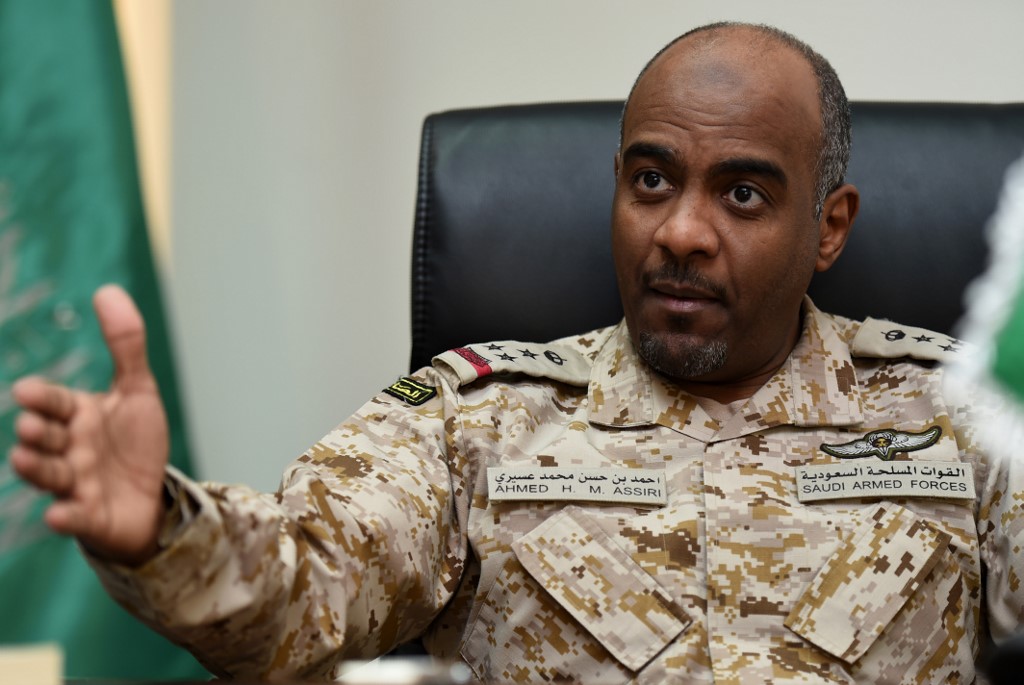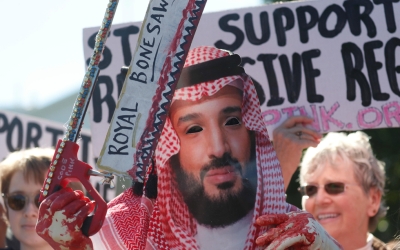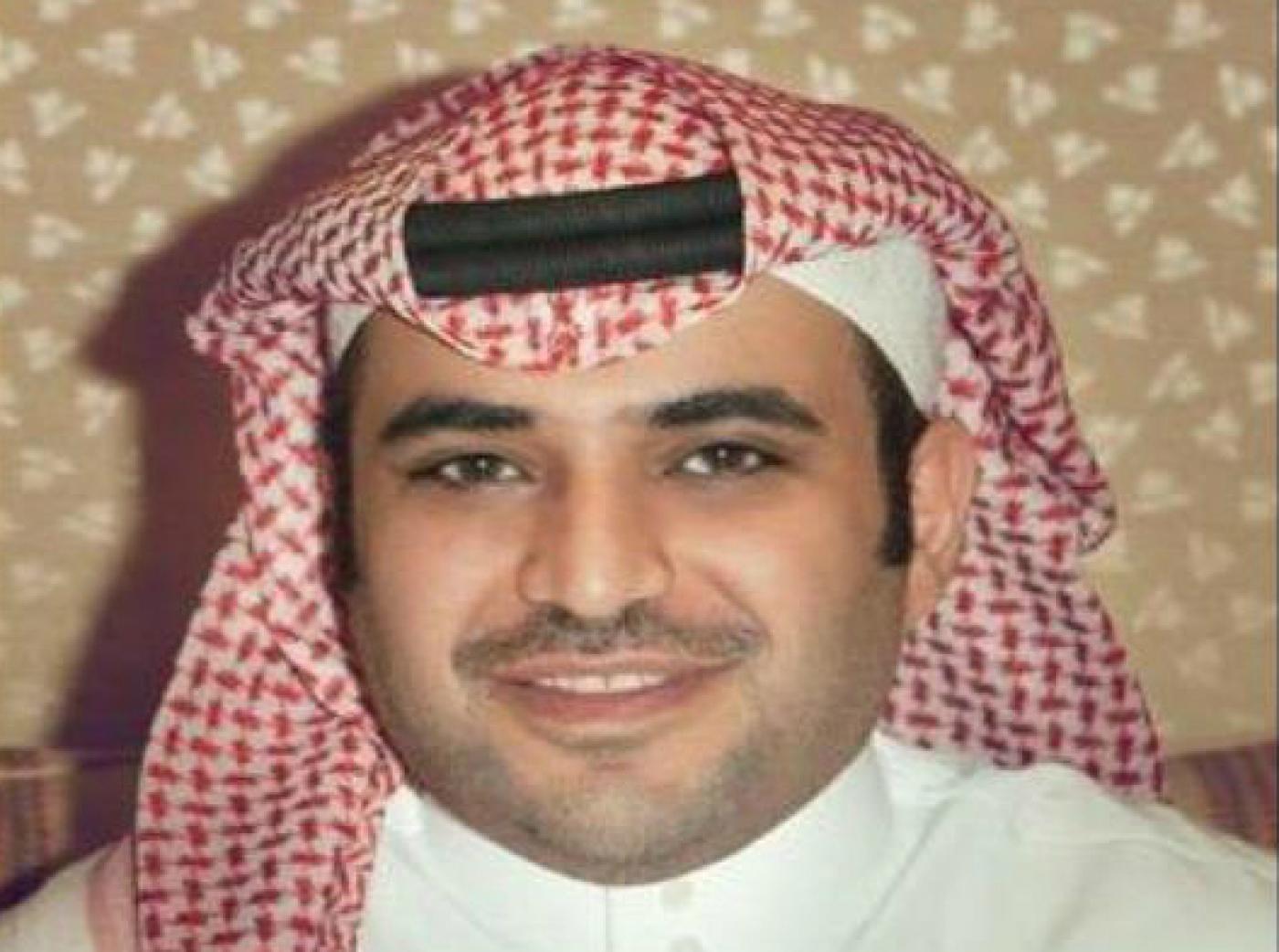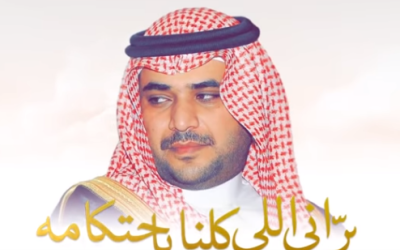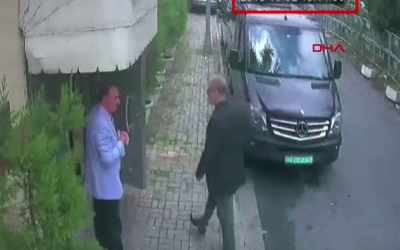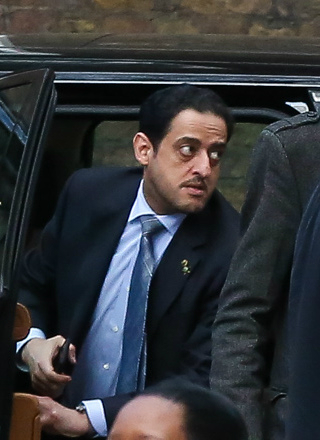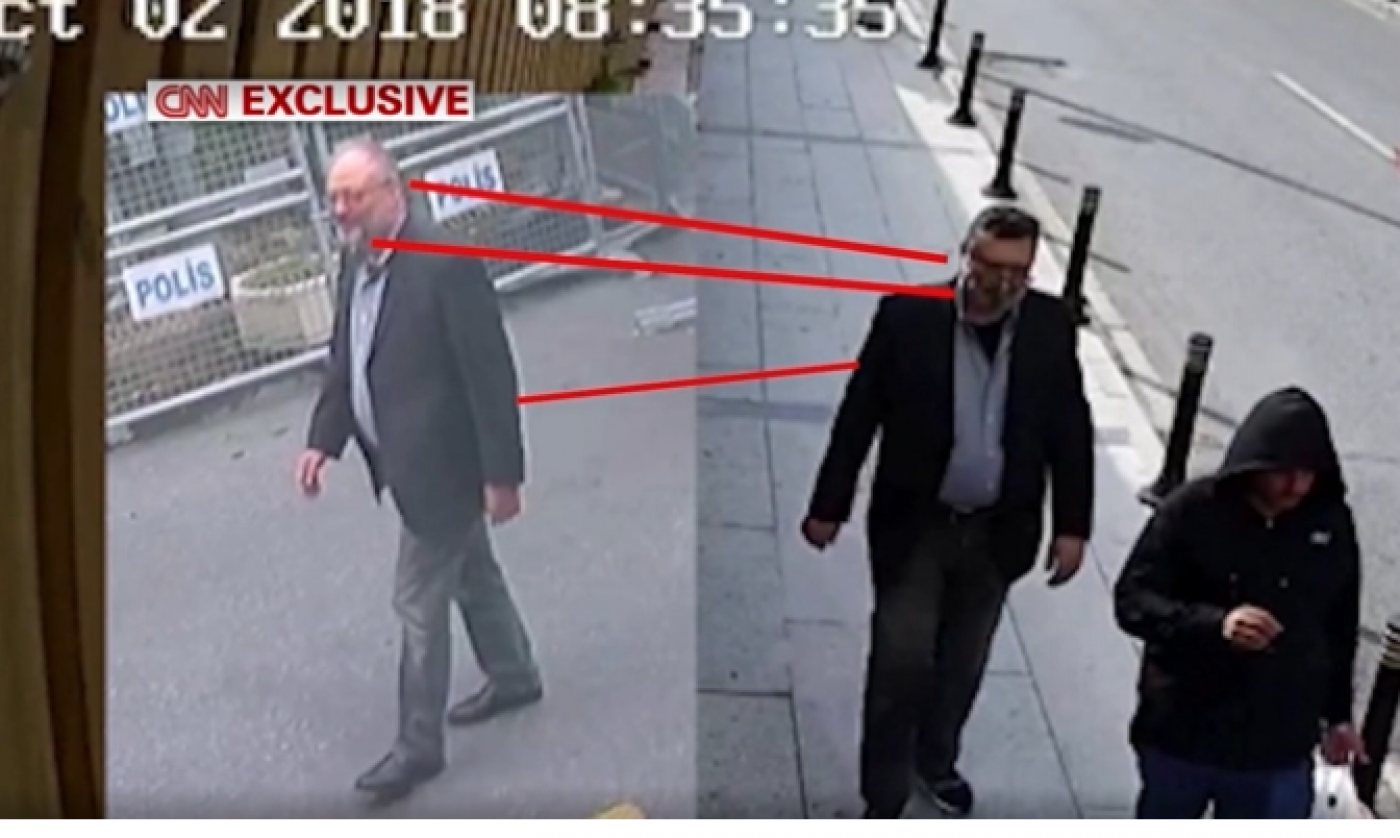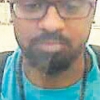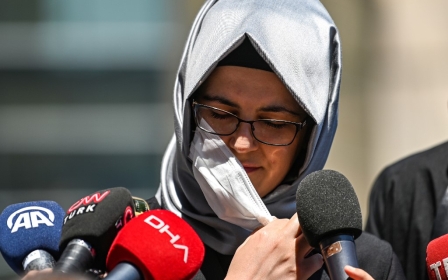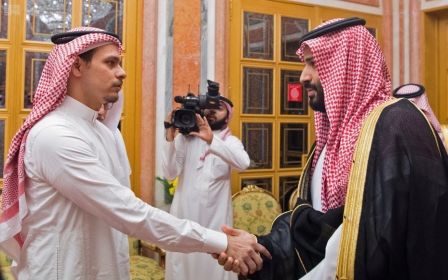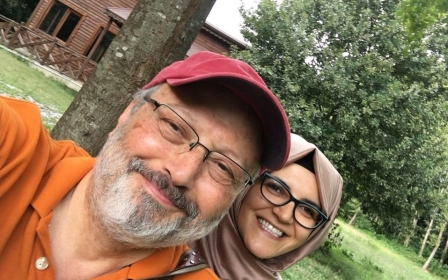Khashoggi murder trial: Who are the suspects?
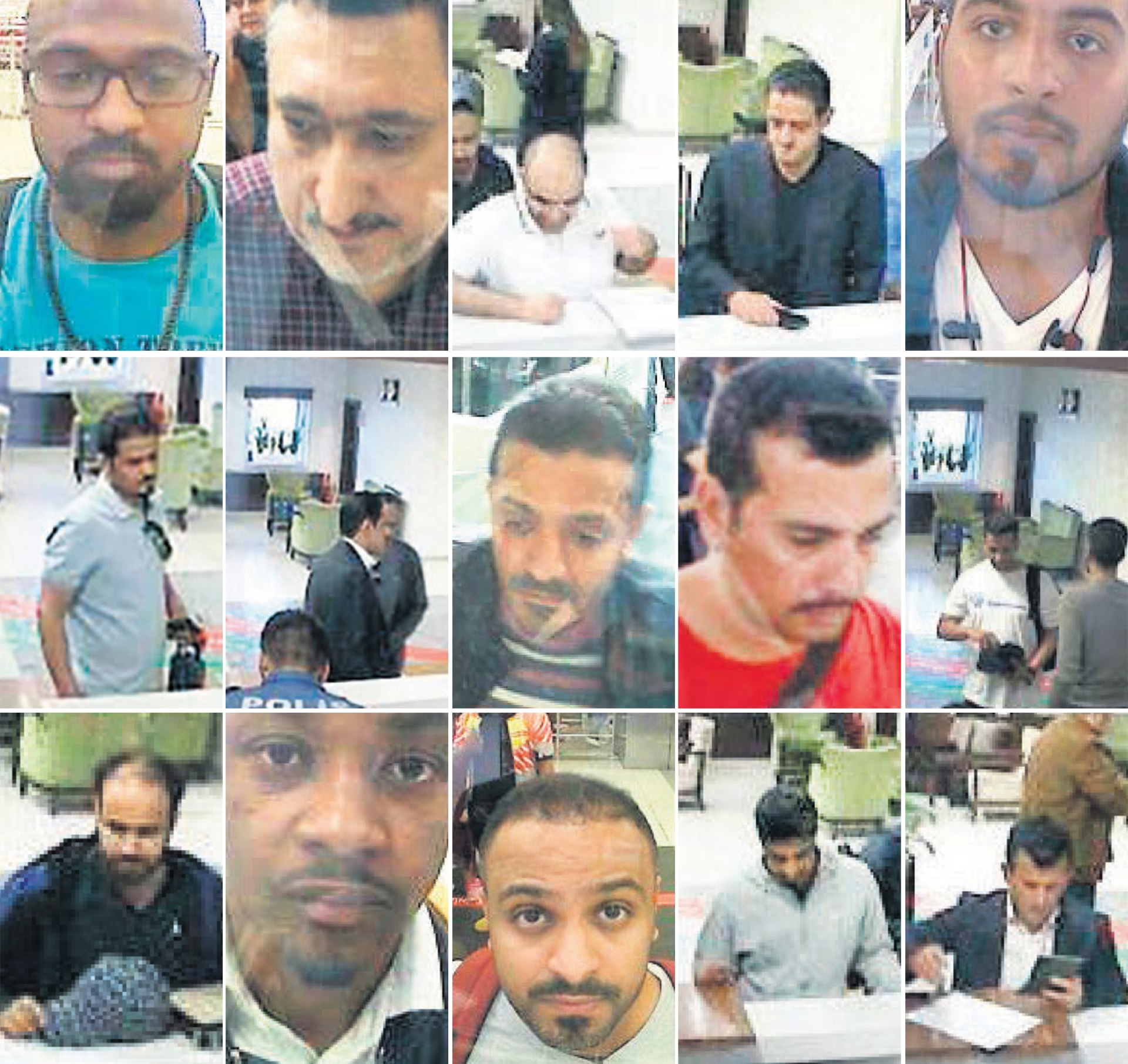
A trial in absentia of 20 Saudi Arabian nationals accused of taking part in the killing of journalist Jamal Khashoggi began on Friday in Istanbul.
The accused range from high-ranking aides of Saudi Crown Prince Mohammad bin Salman, to diplomats and security forces agents with little by way of public profile.
Here's what we know about them:
Ahmed al-Asiri
Ahmed al-Asiri, who was Saudi Arabia's deputy head of military intelligence at the time of Khashoggi's murder, stood trial in Saudi Arabia in December for his suspected involvement, but was cleared due to "insufficient evidence".
He was a close ally of Mohammed bin Salman until his dismissal, as international outcry over Khashoggi's disappearance and death grew.
Shalaan al-Shalaan, Saudi Arabia's deputy public prosecutor, said the investigation concluded that Asiri had sought to repatriate Khashoggi but not kill him.
Several Saudis in the hit squad sent to intercept Khashoggi were members of the Tiger Squad, an elite unit that operated under Asiri and Saud al-Qahtani's command.
The Tiger Squad has been used for assassinations in the past, Middle East Eye revealed, and was named after Asiri himself.
"Asiri is well-known among his colleagues as 'the Tiger of the South'. Since the coalition's war [on Yemen] the Saudi media also started calling Asiri 'the Beast', and he liked this nickname," a Saudi source with intimate knowledge of the unit told MEE.
Prior to taking up his intelligence role, Asiri was the spokesperson for the Saudi-led coalition fighting in Yemen.
In her report on Khashoggi's killing, UN Special Rapporteur Agnes Callamard acknowledged there was no "smoking gun" directly incriminating Mohammed bin Salman, but said it was almost certain he was aware that a plan to target Khashoggi was underway.
Asiri would not have been able to organise such an operation alone, she argued.
"Evidence points to the 15-person mission to execute Mr Khashoggi requiring significant government coordination, resources and finances," she wrote in the report.
"While the Saudi government claims that these resources were put in place by Ahmed Asiri, every expert consulted finds it inconceivable that an operation of this scale could be implemented without the crown prince being aware, at a minimum, that some sort of mission of a criminal nature, directed at Mr Khashoggi, was being launched."
Saud al-Qahtani
Saud al-Qahtani was a top confidant and senior adviser to Mohammed bin Salman, and held much influence inside the crown prince's inner circle.
Following Khashoggi's death, Middle East Eye revealed that Qahtani was part of the command structure of the Saudi death squad, which operated under the guidance and supervision of Mohammed bin Salman.
In the aftermath of the murder, Qahtani was banned from leaving Saudi Arabia and publicly fired from his role as a senior adviser to the crown prince.
Though he was said to have been under investigation, multiple reports suggested that he remained largely free and in contact with the crown prince. Qahtani was cleared by Saudi authorities of any wrongdoing.
In her report, Callamard said she believed Qahtani's firing was a reflection of the Saudi government's acknowledgement that he was involved in Khashoggi's death.
The US Treasury has sanctioned him and described him as "a senior official of the Government of Saudi Arabia who was part of the planning and execution of the operation that led to the killing of Mr. Khashoggi".
Saudi and Turkish sources told Reuters news agency that Qahtani was connected to the Istanbul consulate on the day of Khashoggi's murder via Skype. From there he reportedly began hurling insults at Khashoggi and ordered his men to dispose of the journalist.
Months before Khashoggi's murder, Qahtani tweeted: "Do you think I make decisions without guidance? I am an employee and a faithful executor of the orders of my lord the king and my lord the faithful crown prince."
As head of Saudi Arabia's online activities, Qahtani was responsible for setting up "the flies" - an army of relentlessly pro-Saudi bots and trolls on social media.
In September, Twitter suspended his account, also separately removing accounts linked to Saudi Arabia's "state-run media apparatus" and others in the United Arab Emirates and Egypt, all of them amplifying pro-Saudi messages.
Meanwhile, the family of imprisoned women's rights activist Loujain al-Hathloul has accused Qahtani of being involved in her torture, an allegation that rights group Amnesty International has found credible.
A song written by Qahtani celebrating his "innocence" was in February circulated by a top Saudi entertainment official, suggesting attempts by the ruling class to rehabilitate him.
Salah Mohammed Tubaigy
Saudi Arabia's leading forensics doctor and university professor, Salah Mohammed Tubaigy has published papers on gathering DNA evidence and dissecting human bodies. At the time of Khashoggi's killing, he was listed as the head of forensic evidence at the Saudi General Security Department.
Tubaigy notoriously took a bone saw to Istanbul from Riyadh, which he would later use to dismember Khashoggi's body.
Tubaigy began to cut Khashoggi's body on a table in the study while he was still alive, a Turkish source who listened to an audio recording of Khashoggi's last moments, told MEE.
The killing took seven minutes, the source said.
As he started to dismember the body, Tubaigy put on earphones and listened to music. He advised other members of the squad to do the same.
"When I do this job, I listen to music. You should do [that] too," Tubaigy was recorded as saying, the source told MEE.
In Callamard's report, the UN investigator believes Tubaigy was a last-minute addition to the hit squad, with the express purpose of disposing the journalist's remains.
Recordings from the consulate ahead of Khashoggi's arrival suggest he was ill at ease in the build-up to the operation.
"My direct manager is not aware of what I am doing," Tubaigy is reportedly heard saying in the recordings obtained by Turkish intelligence. "There is nobody to protect me."
In December, Tubaigy was one of five people sentenced to death in Saudi Arabia for carrying out the killing. He was then pardoned by Khashoggi’s children in May.
Maher Abdulaziz Mutreb
Maher Abdulaziz Mutreb has served as Mohammed bin Salman's bodyguard and a military attache to the Saudi embassy in London. He was the leader of the hit squad sent to kill Khashoggi and a member of the elite Tiger Squad.
Surveillance camera footage shows him entering the consulate on the morning of the killing wearing a dark suit and white shirt.
Less than 10 minutes before Khashoggi entered the building, Mutreb is heard on the intelligence recordings asking if the “sacrificial animal” had arrived.
When he stepped into the consulate, Khashoggi recognised Mutreb from his days working at the London embassy.
The two began a heated verbal exchange, with Khashoggi increasingly anxious and resistant until Mutreb injected him with a sedative.
A source told MEE that Turkey intercepted 14 of Mutreb's phone calls on 2 October, the day of Khashoggi's death. Seven of them were to the office of the crown prince.
Mutreb was sentenced to death in December in Saudi Arabia for the killing of Khashoggi but pardoned by Khashoggi's family in May.
Mustafa Mohammed al-Madani
Mustafa Mohammed al-Madani was used by the hit squad as a Khashoggi body double. CCTV footage shows him leaving the Saudi consulate by the back door, dressed in Khashoggi’s clothes, a fake beard and his glasses.
He reportedly then took a taxi to Istanbul’s famous Blue Mosque, where he went into the bathroom and changed into his original clothing.
The Washington Post reported that Madani worked at the headquarters of the kingdom’s primary intelligence agency.
Madani stood trial in Saudi Arabia in December for the killing but was cleared of all charges.
Other suspects:
Meshal Saad al-Bostani - a lieutenant in the Saudi air force from the Red Sea port of Jeddah. He was responsible for the hit squad’s logistics. A Facebook account under his name, which was removed in the days after Khashoggi's death, said he attended the University of Louisville in Kentucky.
He reportedly died in 2018 in a car accident in Riyadh shortly after returning to Saudi Arabia from Istanbul.
Fahad Shabib al-Balawi - a member of the Saudi royal guard who was sentenced to death in December in Saudi Arabia for the killing of Khashoggi. He was pardoned by Khashoggi's family in May.
Abdulaziz Mohammed al-Hawsawi - a member of the security team that has travelled with the Saudi crown prince. He accompanied Mohammed bin Salman to the UK in March 2018 before Khashoggi's murder.
Thaar Ghaleb al-Harbi - a member of the Saudi Royal Guard.
Mohammed Saad al-Zahrani - a member of the Saudi Royal Guard. He stood trial in Saudi Arabia in December for the killing but was cleared of charges.
Naif Hassan al-Arifi - an intelligence operative that was part of the 15-member team accused of carrying out the killing.
Mansour Othman M. Abahussain - a major-general who was present in the consulate on the day of the killing. He stood trial in Saudi Arabia in December for the killing but was cleared of the charges.
Waleed Abdullah al-Shehri - a member of the Saudi Royal Guard who was at the consulate on the day of Khashoggi’s killing. He was sentenced to death in December in Saudi Arabia for the killing of Khashoggi but pardoned by Khashoggi's family in May.
Turki Musharraf al-Shehri - an intelligence officer. He was sentenced to death in December in Saudi Arabia for the killing but also pardoned by Khashoggi's family.
Saif Saad al-Qahtani - worked in Mohammad bin Salman’s palace.
Khalid Aedh al-Otaibi - a member of the royal guard who was present in the consulate on the day of Khashoggi’s murder.
Badir Lafi al-Otaibi - present at the Saudi consulate on the day of Khashoggi’s murder.
Muflis Shaya al-Musleh - posed as a security guard at the consulate but was reportedly an intelligence agent. Musleh stood trial in Saudi Arabia in December for the killing but was cleared of the charges.
Ahmed Abdullah al-Muzaini - an intelligence officer and the deputy head of the consulate.
Saad Muid al-Qarni - part of a team, which included Musleh, that explored places in Istanbul for the possible disposal of Khashoggi’s body.
Middle East Eye propose une couverture et une analyse indépendantes et incomparables du Moyen-Orient, de l’Afrique du Nord et d’autres régions du monde. Pour en savoir plus sur la reprise de ce contenu et les frais qui s’appliquent, veuillez remplir ce formulaire [en anglais]. Pour en savoir plus sur MEE, cliquez ici [en anglais].


